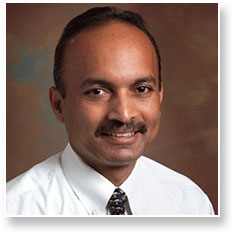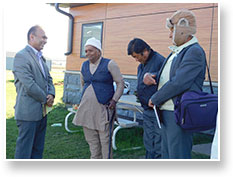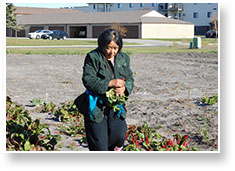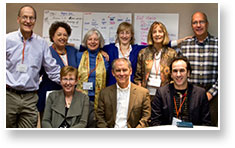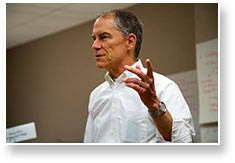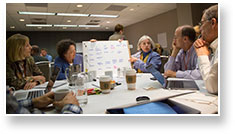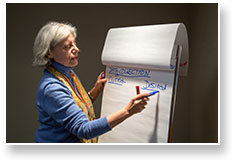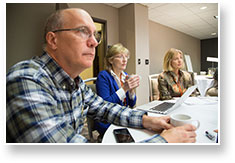
Shuhui Xing—Researching Ethnic Tourism in China
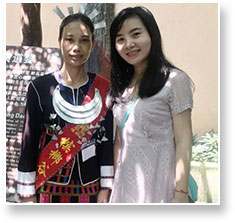
Shuhui with a Li ethnic minority woman she interviewed for her dissertation
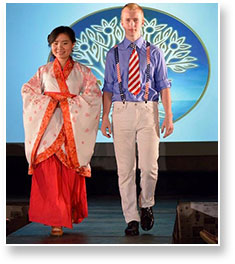
At the Ecojam fashion show in Fairfield wearing a traditional Chinese Han dress
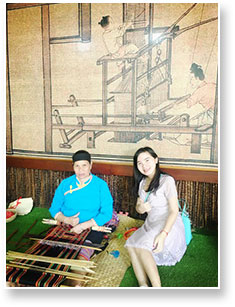
With a Li woman practicing traditional handicraft
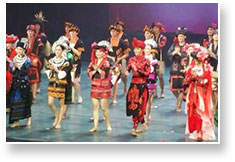
Li women wearing various traditional dresses
MUM student Shuhui (Vinenna) Xing was born and raised in Sanya, on Hainan Island, China, which is a popular tourist destination with a tropical climate. Not far from her home town is Bing Lang Gu, an ethnic minority tourism destination, where local residents still practice thousand-year-old traditions.
For her Ph.D. dissertation, Shuhui decided to explore recent ethnic and sustainable tourism trends in China to find out how these practices can help her local community preserve its culture while also reaping the economic benefits of sustainable tourism. The subject of her research is the Li ethnic minority group, which is one of the dozens of minorities in China, in addition to the ninety-two percent Han majority.
Prior to coming to MUM, Shuhui received a bachelor’s degree in hotel management from the University of Science and Technology at Macau, China, in 2013. As an undergraduate, she also spent time at Florida State University as an exchange student studying hospitality and completed a six-month internship at Disney World in Orlando, Florida.
Shuhui enrolled in the MBA Accounting Program in 2013 and felt at home in the friendly environment on campus right away. “I like meeting different people from different countries. MUM is just like the United Nations.” She also discovered that the Transcendental Meditation® technique improved all aspects of her life, including her health. “TM makes me more relaxed by releasing my stress, so I can focus on studying and get along well with my friends,” she said.
In 2014, Shuhui was part of the MUM MBA student team that finished first in the CAPSIM online business simulationcompetition. She is currently a graduate instructor in the Business Department, teaching courses on managerial accounting via distance education to students at the Maharishi Institute in South Africa.
Shuhui enjoys traveling and has a professional interest in ecotourism and ethnic tourism. She is excited to be able to focus her doctoral dissertation on a topic close to her home and heart. “I am familiar with the local minorities and have always admired their cultures,” she said. “I hope my research can help them improve their ethnic tourism development and get more people involved in protecting their cultures.”
“Shuhui’s positive and outgoing personality made it easy for her to collect interview data from a range of people at the Bing Lang Gu ethnic tourism site, including tourists, tourism operators, government officials, and local indigenous people,” said Dennis Heaton, professor of management.




